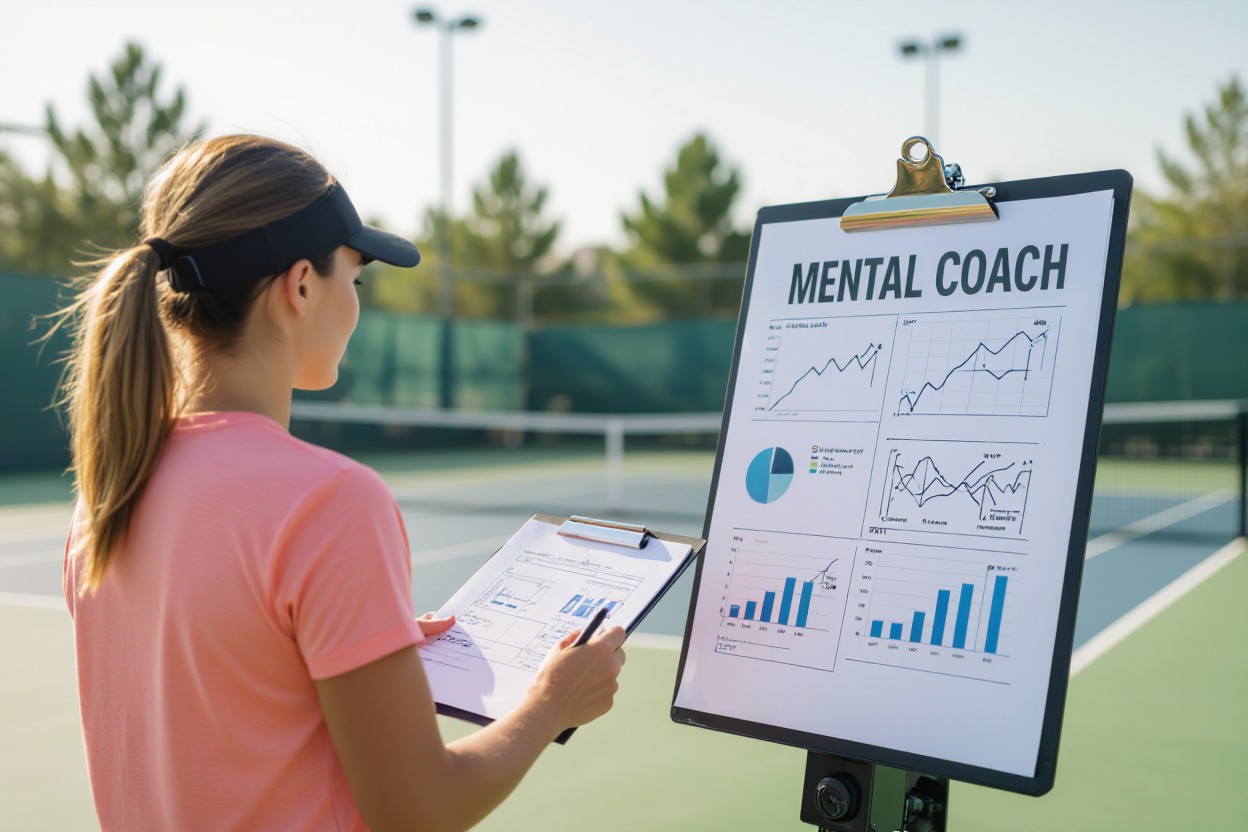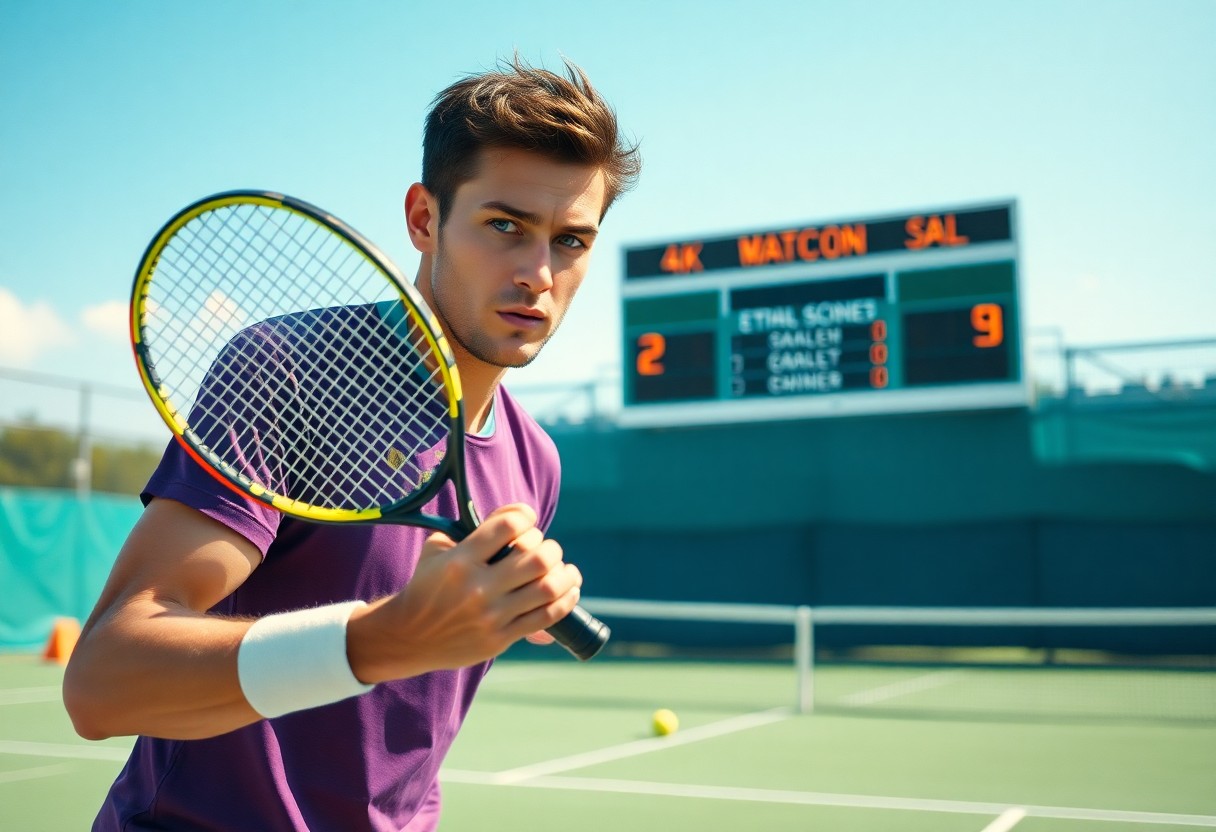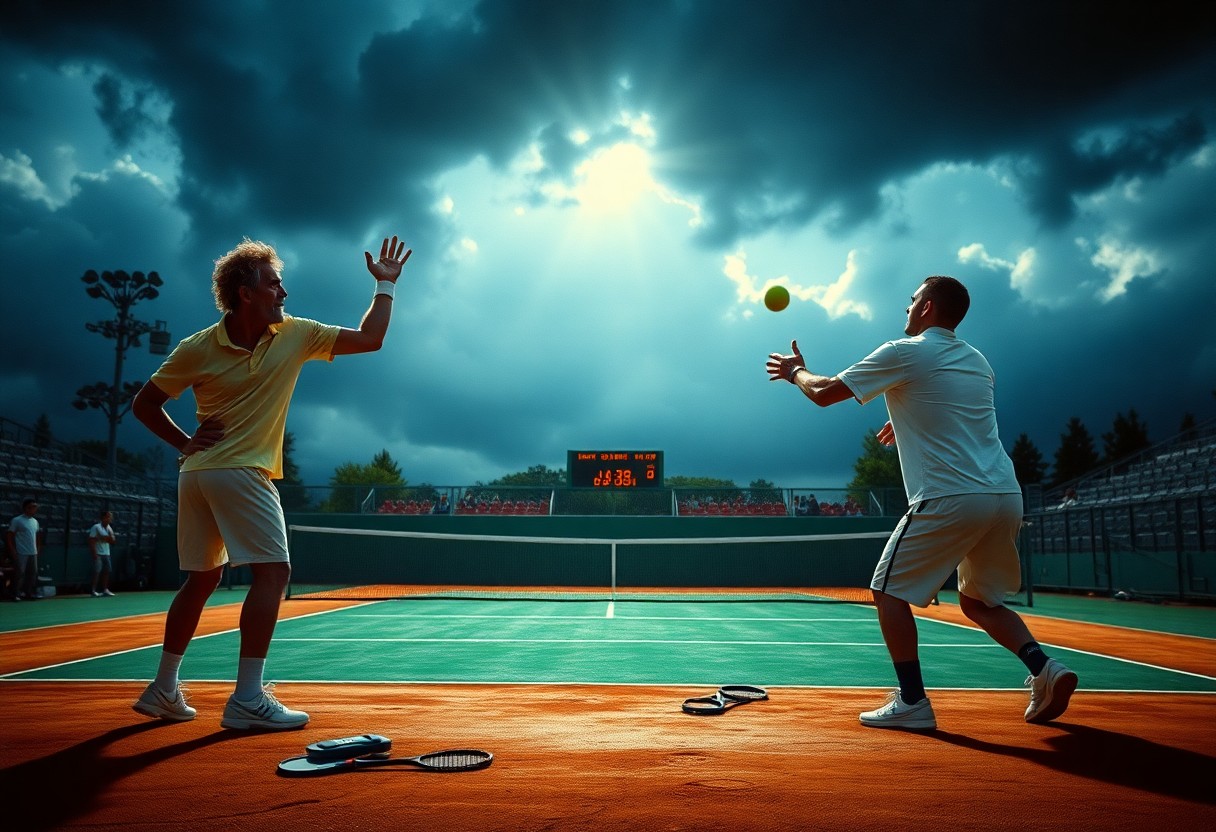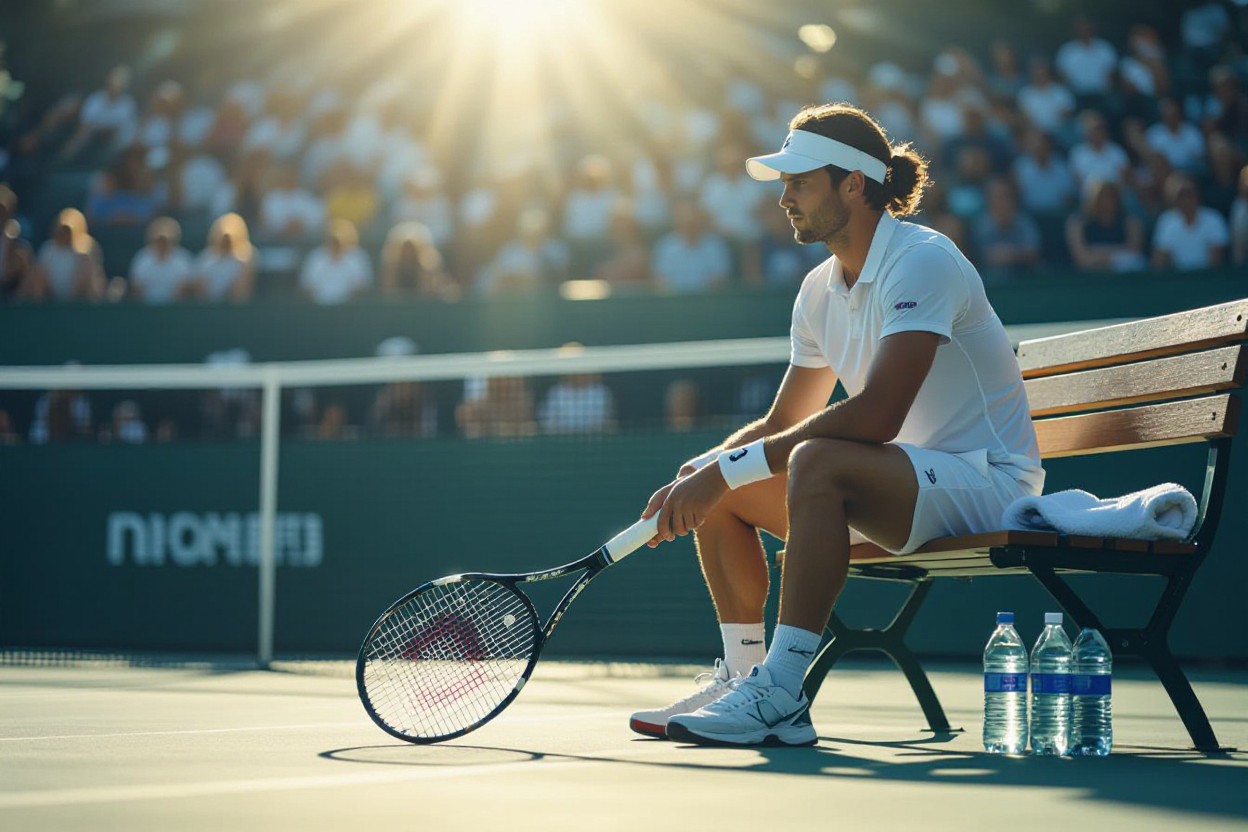Just when you thought tennis was all about physical prowess and technical skills, a revolutionary shift has transformed the sport’s highest levels. You’ll notice today’s elite players aren’t just hitting balls with their coaches; they’re actively engaging with mental performance experts. Your favorite tennis stars, from Djokovic to Swiatek, now consider psychological training as necessary as their physical workouts. This growing trend has redefined success in professional tennis, where mental resilience often becomes the deciding factor between victory and defeat in those high-stakes moments.
The Evolution of Mental Coaching: A New Frontier in Tennis
Historical Context: The Mental Game’s Rise in Sports
Mental coaching emerged in professional sports during the 1980s, transforming from basic visualization techniques to sophisticated psychological training. Sports psychologists first gained prominence in Olympic programs, where athletes reported up to 30% performance improvements after incorporating mental training. Tennis, with its unique psychological demands and individual nature, became a natural testing ground for these emerging mental conditioning methods.
Adoption in Elite Tennis: Key Influencers and Pioneers
Jim Loehr’s groundbreaking work with tennis players in the 1990s marked a turning point, introducing concepts like “mental toughness” and “emotional control” to the professional circuit. Brad Gilbert’s coaching philosophy, detailed in his influential book “Winning Ugly,” demonstrated how mental strategy could overcome superior technical skills. These pioneers paved the way for today’s specialized mental performance coaches.
Modern tennis champions have embraced mental coaching as an integral part of their success formula. Novak Djokovic’s collaboration with mental coach Pepe Imaz helped transform his emotional control on court, while Andy Murray’s work with sports psychologist Alexis Castorri contributed to his Grand Slam breakthrough. You’ll find that nearly every top-50 player now includes a mental performance specialist in their support team, marking a dramatic shift from the technique-focused coaching models of previous decades.
Techniques and Tools: The Arsenal of Mental Coaches
Modern mental coaches employ a diverse toolkit that combines traditional sports psychology with cutting-edge neuroscience. Their methods range from biofeedback monitoring and cognitive behavioral techniques to specialized relaxation protocols. These evidence-based approaches help players develop personalized pre-match routines, manage high-pressure situations, and maintain optimal arousal levels during competition.
Visualization and Imagery: Harnessing the Mind’s Eye
Through detailed visualization exercises, players mentally rehearse every aspect of their game – from serve routines to match-winning points. Research shows that visualization activates the same neural pathways as physical practice, effectively training your brain for success. Top players like Novak Djokovic spend up to 30 minutes daily in guided imagery sessions, mentally practicing specific shots and scenarios they might encounter on court.
Mindfulness and Focus: Building Mental Resilience
Mental coaches guide players through structured mindfulness practices, teaching them to stay present during matches and manage distracting thoughts. Regular mindfulness training can reduce match anxiety by up to 35% and improve decision-making under pressure. Your ability to maintain focus during critical points often determines the outcome of close matches.
The mindfulness toolkit includes breathing exercises, meditation sessions, and on-court awareness drills. Players learn to identify their optimal performance state and develop triggers to access it consistently. Studies of elite tennis players show that those who practice mindfulness for 12 minutes daily experience a 23% improvement in their ability to handle match pressure. These techniques help you build a foundation of mental resilience that becomes particularly valuable during long tournaments and high-stakes matches.
The Winning Edge: How Mental Coaching Transforms Performance
Mental coaching has revolutionized how tennis players approach their game, with 80% of top-50 players now incorporating psychological training into their routines. Players working with mental coaches report a 35% reduction in match-related anxiety and show measurable improvements in focus and decision-making during critical points.
Case Studies: Success Stories from the Court
The transformation of players through mental coaching presents compelling evidence of its impact at the highest levels of tennis. From managing pressure points to maintaining composure during Grand Slam finals, the data shows significant performance improvements.
- Emma Raducanu: 40% improvement in tie-break win rate after starting mental coaching in 2021
- Daniil Medvedev: Reduced on-court outbursts by 75% over one season
- Iga Świątek: Increased win percentage in deciding sets from 58% to 82% post-mental coaching
- Carlos Alcaraz: Maintained a 92% focus rating during high-pressure moments in 2022
Psychological Benefits: More Than Just Winning
Mental coaching extends beyond match performance, creating lasting positive changes in players’ overall well-being. Athletes report improved sleep patterns, better stress management, and enhanced personal relationships off the court.
Your mental resilience develops through specialized techniques like visualization, breathing exercises, and mindfulness practices. Players experiencing regular mental coaching sessions show a 45% increase in positive self-talk and maintain more stable emotional states during challenging tournament schedules. This comprehensive approach helps you build a stronger foundation for both athletic excellence and personal growth.
Resistance and Acceptance: Challenges in the Tennis Community
The tennis world’s adoption of mental coaching hasn’t been without its hurdles. Traditional training methods, deeply rooted in physical conditioning and technical skills, have created natural friction points as mental coaching seeks to establish its place. Recent surveys show that 65% of top-100 players now work with mental performance specialists, yet the path to this acceptance has required overcoming significant institutional and cultural barriers.
Skepticism Among Players: The Old Guard vs. New Age
Veterans of the sport often point to their success without formal mental training, creating a divide between generations. Players who achieved greatness in the pre-mental coaching era frequently question the necessity of structured psychological support. However, rising stars like Coco Gauff and Carlos Alcaraz openly credit their mental coaches for breakthrough performances, gradually shifting the narrative from skepticism to curiosity.
Integration into Training Regimens: The Balancing Act
Finding the sweet spot between physical and mental training demands careful scheduling and coordination. Top academies now allocate 20-30% of training time to mental preparation, incorporating visualization sessions, pressure-simulation drills, and mindfulness practices alongside traditional court work. This integration requires coaches to adapt their programs while ensuring players maintain peak physical conditioning.
Modern tennis academies have revolutionized their approach by creating hybrid training schedules. You’ll find players starting their day with meditation sessions before hitting the court, while afternoon practices might include on-court scenarios designed to trigger and manage stress responses. Performance data shows that players who balance physical and mental training see a 40% reduction in unforced errors during high-pressure matches. The key lies in treating mental preparation as equally crucial as serve practice or footwork drills.
The Future of Mental Coaching in Tennis: Trends to Watch
Mental coaching in tennis continues evolving rapidly, with emerging trends reshaping how players approach their psychological preparation. From data-driven performance analysis to personalized mindfulness techniques, the field expands beyond traditional sports psychology methods. Research indicates that 85% of professional players now incorporate some form of mental training into their regular practice routines, signaling a fundamental shift in how the sport approaches mental preparation.
Technological Advancements: Apps and Remote Coaching
Virtual reality simulations and AI-powered mental training apps now allow you to practice pressure situations and visualization techniques from anywhere. Leading tennis academies have reported a 40% increase in remote mental coaching sessions since 2020. Mobile applications track your emotional responses during matches, providing real-time feedback and personalized coping strategies, while wearable devices monitor stress levels and recovery patterns.
Global Influence: Shaping the Next Generation of Players
Tennis academies worldwide have integrated comprehensive mental training programs into their youth development curricula. Young players now start mental coaching as early as age 10, developing emotional resilience and competitive mindset alongside technical skills. This holistic approach has shown remarkable results, with academies reporting improved tournament performance and reduced burnout rates among junior players.
The globalization of mental coaching has created a rich exchange of methodologies between different tennis cultures. Japanese meditation techniques blend with European sports psychology approaches, while American performance coaching merges with Australian mindfulness practices. Your access to this diverse knowledge base means you can now customize mental training approaches that best suit your playing style and cultural background, creating a more inclusive and effective development pathway.
Conclusion
Following this exploration of mental coaching in elite tennis, you can see how psychological support has transformed from a stigmatized concept to an necessary component of professional success. Your understanding of the game now extends beyond physical prowess, as top players increasingly embrace mental conditioning to gain a competitive edge. When you look at modern tennis champions, you’ll notice their investment in mental coaches stands equal to their dedication to technical training. This shift has redefined what it takes to succeed at the highest levels of the sport.




